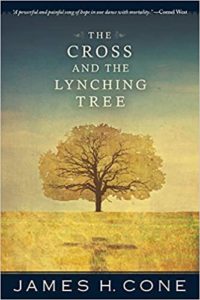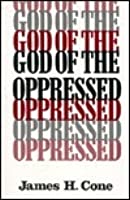The Gospel According to James Cone
It seems that Dr. James Hal Cone (1938-2018), founder of Black Liberation Theology*, is being universally championed by those who both claim Christ and embrace the woke movement. One author, speaking favorably of Cone, recently stated, “No analysis of Black ecclesial tradition could be complete without some interaction with him.”** I have been baffled especially by Cone’s widespread acclaim among Blacks who do still articulate the biblical doctrine of substitutionary atonement, that Christ Jesus endured the full wrath of God on behalf of all those whom God had given him (John 10:14-18; Romans 5:8-10). Examples of such acclaim include Pass the Mic’s podcast episode, “Reflecting on Dr. James Cone,” Jemar Tisby – “James Cone, the Cross, and the Lynching Memorial”, Malcolm Foley – “On the Assault of James Cone & Black Liberation Theology”, Timothy Thomas – “Why You Should Read ‘The Cross and the Lynching Tree”, and a post from Lecrae, praising a friend for reading, among other things, a book written by James Cone (book six in the right-most stack).
Despite Cone’s clear detestation of the gospel message, which was of first importance for the apostles (Acts 2:22-24; I Cor. 15:1-4), woke Christians refuse to reject Cone as a heretic. Having read some of his books, my desire with this article is to highlight instances of Cone himself telling us what he believed about the gospel. “There are some who are disturbing you and want to distort the gospel of Christ” (Gal. 1:7). It will be clear from the following quotations that James Cone was such a man.
These quotes are taken from Black Theology and Black Power (1969), “Biblical Revelation and Social Existence” (1974), God of the Oppressed (1975), and The Cross and the Lynching Tree (2011), and provide sufficient evidence that he maintained damnable error throughout the entirety of his writing career. To the best of my ability, I have maintained the author’s intended meaning in the various contexts of each statement. The four categories of quotations include Scripture references that refute the error being communicated.
1. Christ did not save men by dying in their place on the cross
“Delores Williams, a womanist theologian, challenged interpretations of the Christian faith that placed the cross at the center… She rejected the view common in classic texts of Western theological tradition as well as in the preaching in African American churches that Jesus accomplished human salvation by dying in our place. According to Williams, Jesus did not come to save us through his death on the cross but rather he ‘came to show redemption through a perfect ministerial vision of righting relationships… I accept Delores Williams’s rejection of theories of atonement as found in the Western theological tradition and in the uncritical proclamation of the cross in many black churches. I find nothing redemptive about suffering in itself. The gospel of Jesus is not a rational concept to be explained in a theory of salvation, but a story about God’s presence in Jesus’ solidarity with the oppressed, which led to his death on the cross. What is redemptive is faith that God snatches victory out of defeat, life out of death, and hope out of despair, as revealed in the biblical and black proclamation of Jesus’ resurrection.” The Cross and the Lynching Tree, 149-150
Scripture references to the contrary: Isaiah 53:7-12; II Corinthians 5:21; I Peter 2:24; I John 2:1-2
2. Christ’s purpose in coming, dying, and rising again was earthly liberation
“He is God himself coming into the very depths of human existence for the sole purpose of striking off the chains of slavery, thereby freeing man from ungodly principalities and powers that hinder his relationship with God… Jesus’ work is essentially one of liberation.” Black Theology and Black Power, 35
“I intend to make the theological point that the “scandal” (skandalon, stumbling block) is no different for us today than for the people who encountered Jesus in the first century. It is that the exorcisms disclose that God in Jesus has brought liberation to the poor and the wretched of the land, and that liberation is none other than the overthrow of everything that is against the fulfillment of their humanity. The scandal is that the gospel means liberation, that this liberation comes to the poor, and that it gives them the strength and the courage to break the conditions of servitude. This is what the Incarnation means. God in Christ comes to the weak and the helpless, and becomes one with them, taking their condition of oppression as his own and thus transforming their slave-existence into a liberated existence.” God of the Oppressed, 77
“This man Jesus was killed because of his threat to the order of injustice. But he was resurrected as Lord, thereby making good God’s promise to bring freedom to all who are weak and helpless. This resurrection is the guarantee that Jesus is the Christ who is with us now in our present and will be with us forever and ever.” God of the Oppressed, 107
Scripture references to the contrary: Matthew 1:20-21; John 3:14-17; I Timothy 1:15; I Peter 3:18
3. Christ’s death obtained social, political, physical liberation
“Looking at the New Testament, the message of the gospel is clear: Christ came into the world in order to destroy the works of Satan (I John 3:8). His whole life was a deliberate offensive against those powers which held man captive…It was not until Christ’s death on the cross that the decisive battle was fought and won by the Son of man. In that event, the tyranny of Satan, in principle, came to an end. The Good News is that God in Christ has freed us; we need no longer to be enslaved by alien forces. The battle was fought and won on Good Friday and the triumph was revealed to men at Easter… The white structure of this American society, personified in every racist, must be at least part of what the New Testament meant by the demonic forces.” Black Theology and Black Power, 40-41
“In [Jesus] is embodied God’s Kingdom in which men are liberated. He is, as Paul says, the ‘New Adam,’ who has done for man what man could not do for himself. His death and resurrection mean that the decisive battle has been fought and won, and man no longer has to be a slave to ‘principalities and powers.’” Black Theology and Black Power, 64-65
“I would also contend that they missed the decisive ingredient of the gospel message. For if the essence of the gospel is the liberation of the oppressed from sociopolitical humiliation for a new freedom in Christ Jesus (and I do not see how anyone can read the Scriptures and conclude otherwise), and if Christian theology is an explication of the meaning of the gospel for our time, must not theology itself have liberation as its starting point or run the risk of being at best idle talk and at worst blasphemy?” God of the Oppressed, 51
“This work is a continuation and culmination of all my previous books, each of them, in different ways, motivated by a central question: how to reconcile the gospel message of liberation with the reality of black oppression.” The Cross and the Lynching Tree, xv
“It seemed as if a transcendent voice were speaking to me through the scriptures and the medium of African American history and culture, reminding me that God’s liberation of the poor is the primary theme of Jesus’ gospel.” The Cross and the Lynching Tree, 154
“The Christian gospel is God’s message of liberation in an unredeemed and tortured world.” The Cross and the Lynching Tree, 155
Scripture references to the contrary: Romans 6:4-7; I Corinthians 7:21-24; I Thessalonians 5:9-10
4. Gospel proclamation is (and requires) working for earthly liberation and socioeconomic improvement
“To accept God’s grace means that because God has acted for all, all men are free—free to respond creatively to that act. It thus becomes the act of Christian love to proclaim the Good News of freedom by actively fighting against all those powers which hold men captive.” Black Theology and Black Power, 52
“Black Theology’s answer to the question of hermeneutics can be stated briefly: The hermeneutical principle for an exegesis of the scriptures is the revelation of God in Christ as the liberator of the oppressed from social oppression and to political struggle, wherein the poor recognize that their fight against poverty and injustice is not only consistent with the gospel but is the gospel of Jesus Christ. Jesus Christ the liberator, the helper and the healer of the wounded, is the point of departure for valid exegesis of the scriptures from a Christian perspective. Any starting point that ignores God in Christ as the liberator of the oppressed or that makes salvation as liberation secondary is ipso facto invalid and thus heretical.” Biblical Revelation and Social Existence
“The New Testament gospel of liberation turns our priority system upside down and demands that we fight for the freedom of those in captivity. This message of liberation cannot appeal to those who profit from the imprisonment of others but only to slaves who strive against unauthorized power… Because most biblical scholars are the descendants of the advantaged class, it is to be expected that they would minimize Jesus’ gospel of liberation for the poor by interpreting poverty as a spiritual condition unrelated to social and political phenomena. But a careful reading of the New Testament shows that the poor of whom Jesus spoke were not primarily (if at all) those who are spiritually poor as suggested in Matthew 5:3.” God of the Oppressed, 78
Scripture references to the contrary: Matthew 5:3; Acts 3:1-10; II Corinthians 8:1-2
Many today are willing to overlook the soul-destroying error of Cone in order to glean from what they claim are helpful insights into race, oppression, and justice in America. Such naïveté is ruinous. The apostles knew as much, which is why they pronounced God’s curse on those who contradicted the gospel (Gal. 1:8-9) and instructed that such men be avoided (I Tim. 6:20-21; II Jn. 10-11). We would do well to heed these wise words regarding Dr. Cone.
________________________________________
* James Cone articulates his own ideas about Black Liberation Theology and the gospel message in this 13-minute, 2008 NPR interview: https://www.npr.org/templates/story/story.php?storyId=89236116.
** Esau McCaulley, Reading While Black: African American Biblical Interpretation as an Exercise in Hope (Downers Grove, IL: InterVarsity Press, 2020), 177.


